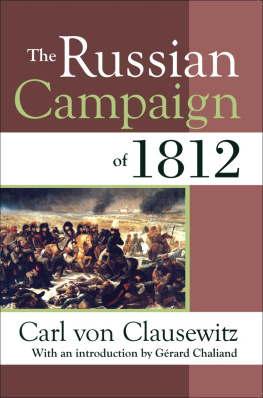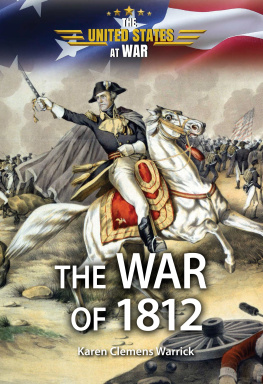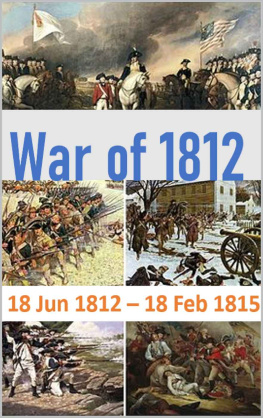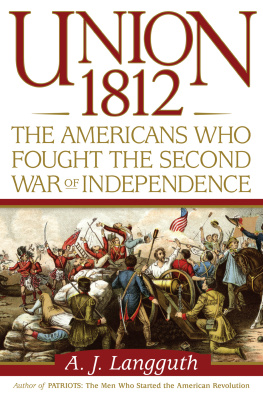THE WAR OF 1812

Sir Isaac Brock.
(Courtesy of Brock University.)
THE WAR OF 1812
The War That
Both Sides Won
WESLEY B. TURNER
Second Edition

Copyright Wesley B. Turner 2000
All rights reserved. No part of this publication may be reproduced, stored in a retrieval system, or transmitted in any form or by any means, electronic, mechanical, photocopying, recording, or otherwise (except for brief passages for purposes of review) without the prior permission of Dundurn Press. Permission to photocopy should be requested from the Canadian Copyright Licensing Agency.
Editor: Barry Jowett
Design: Jennifer Scott
Printer: Friesens Corporation
Canadian Cataloguing in Publication Data
Turner, Wesley B., 1933
The War of 1812: the war that both sides won
2nd ed.
Includes bibliographical references and index.
ISBN 1-55002-336-5
1. Canada History War of 1812 2. United States History War of 1812. I. Title
FC442.T873 2000 971.034 C00-930048-1 E359.85.T87 2000
1 2 3 4 5 04 03 02 01 00

We acknowledge the support of the Canada Council for the Arts, the Ontario Arts Council, and the Book Publishing Industry Development Program (BPIDP) for our publishing activities.
Care has been taken to trace the ownership of copyright material used in this book. The author and the publisher welcome any information enabling them to rectify any references or credit in subsequent editions.
J. Kirk Howard, President
Printed and bound in Canada.
Printed on recycled paper. 
Dundurn Press
8 Market Street
Suite 200
Toronto, Ontario, Canada
M5E 1M6
Dundurn Press
73 Lime Walk
Headington, Oxford,
England
OX3 7AD
Dundurn Press
2250 Military Road
Tonawanda, New York
U.S.A. 14150
TABLE OF CONTENTS
To my wife, Diane
PREFACE
Tragedy and farce, bravery and cowardice, intelligence and foolishness, sense and nonsense: these contrasts and more characterized the War of 1812. The story is interesting in itself. And this interest continues to be renewed by current discoveries that further illuminate the period: for example, the discovery in 1975 and subsequent photographing of the Hamilton and Scourge at the bottom of Lake Ontario, and the 1987 find of skeletons on the shore of Lake Erie at Snake Hill, grisly casualties of the fighting around Fort Erie in AugustSeptember 1814. As these finds and a constant flow of writings show, the war has exercised an indelible influence on American and Canadian views of themselves and of each other a further reason for taking yet another look at its course and character.
This book derives from my The War of 1812: The War for Canada, a book that was written as a school text but that also elicited interest and led to requests for copies. The supply of books was never enough to meet these requests and, after the original work went out of print, I decided to revise it for the general reader rather than simply reprint a textbook.
The book was written to provide a succinct yet comprehensive account of the War of 1812 that would both interest and inform the general reader. At the same time, historians may find this a useful, short, up-to-date version of that formative event. I did not attempt a radical or unusual interpretation. Instead I have included more than a single viewpoint with the intention of providing enjoyment to both American and Canadian readers out of which, perhaps, they may gain some understanding of the important effects this war had on each country.
PREFACE
to the Second Edition
The War of 1812 has produced a literary explosion over the past decade. In the years since this book was first published, more than twenty scholarly works dealing directly with the subject have appeared, as have four others that relate to it less directly and several guidebooks. Of course, I may have missed some titles and I am not counting journal or magazine articles. Nor am I including books that I know are underway but not yet published.
In light of this outburst of fresh and deeper insights, I decided that my War of 1812. The War That Both Sides Won would benefit from a reassessment. The recent literature challenges some of the established scholarly interpretations of the war and I have tried to incorporate some of the new ideas and information in the revision.
These writings also provide fuller explorations of campaigns, battles, the naval contest on the Great Lakes, and personnel. There seems to be less nationalist bias and stronger effort to see the other sides point of view. To assist the reader to become acquainted with some of the new literature, I have expanded the selected bibliography. The titles you see there indicate the wealth of writing and some of the leading authors in the field.
I am much indebted to the staff of Parks Canada at Fort George, and to David Webb in particular, for their assistance with this revision. I am happy also to thank Kirk Howard for his support and Barry Jowett for clarifying much of my text through his expert editing.
WBT
Niagara-on-the-Lake, October 1999
INTRODUCTION
In June 1812 the contagion of war spread far beyond the European continent where it had raged for two decades from the early years of the French Revolution. In the United States, President James Madison delivered a war message to Congress on June 1 and, after approval by both Houses, signed a declaration of war against Great Britain on the 18th. A week later, thousands of kilometres to the east, Emperor Napoleon Bonaparte led the most powerful army in Europe across the Niemen River into Russia. The obvious difference in scale of warfare and the great distance between these two theatres does not obscure the connection between these two events. The Napoleonic Wars in Europe did not only help cause the war in North America; they would directly affect its entire course. It may be said that the War of 1812 was the North American phase of the Napoleonic Wars.
In an effort to defeat Napoleon, Britain adopted measures that elicited protests from the Americans and contributed significantly to their declaration of war. At first, with its forces tied up fighting the French in the Peninsula (Spain and Portugal) Britain could send little help to its North American colonies. But Napoleons invasion of Russia turned into a stunning disaster that virtually destroyed his Grand Army. He raised more troops and fought on, but suffered an increasing number of defeats. The wearing down of the French armies enabled Britain to spare more attention, troops, and supplies for North America. Once Napoleon finally surrendered, the United States could no longer hope to win its war against Britain.
One historian has called the War of 1812 the Incredible War, and there were indeed many incredible aspects to it including the very fact that it happened. Britain and the United States had more reasons to remain at peace than to fight.
Next page









